Terms in this set (11) 1300—1377 The years between which de Machaut lived Sacred and secular Guillaume de Machaut wrote both of these types of music, by working for several princes and kings as well as for the church Monophonic and polyphonic de Machaut wrote melodies withCommon in medieval secular music, a(n) MELISMA is a musical ornament in which several notes are sung to one syllable of text GUILLAUME DE MACHAUT wrote the earliest polyphonic setting of the entire Ordinary of the Mass, Messe de Nostre Dame (Mass of Our Lady)Reunion Updates & News guillaume dufay interesting facts– ) FrancoFlemish composer of the early Renaissance He was the most famous and influentialGuillaume Dufay The works of the Netherlandish composer Guillaume Dufay (ca ) marked the beginning of the Renaissance and influenced the course of music during the 15th and 16th centuries Born probably in the province
A History Of Classical Music Part 3 The Early Renaissance The List
Guillaume de machaut is well known for what musical achievement
Guillaume de machaut is well known for what musical achievement-Guillaume de Machaut became quite wellknown as an administrator, poet, and composer Wrote many long poems and was probably the author of the lyrics for his own songs, mostly polyphonic and secular, sharps and flatsGuillaume de Machaut, The Complete Poetry and Music, Vol 11 The Rondeaux and Virelais Edited by Yolanda Plumley, Uri Smilansky, Tamsyn MahoneySteel, Anne Stone and R Barton Palmer Guillaume de Machaut, the most important poet and composer of late medieval France, was a pioneer of a new school of lyric composition in his day




The Polyphonic Lais Of Guillaume De Machaut Overview Recordings Musica Kaleidoskopea
Guillaume de Machaut (ca ) is the most wellknown composer of the 14 th century I can make this statement with complete confidence of its veracity Machaut had a day job, he worked for John of Luxembourg, King of Bohemia, from 'around twelve years' before 1330 until at least 1333 (and probably until 1346) (Leach, Elizabeth EvaAround Anne Walters Robertson, Guillaume de Machaut and 1335 he obtained another canonry, at the collegiate church Reims context and meaning in his musical works of SaintQuentin, to which occasion motet 19, in praise of (Cambridge Cambridge University Press, 02), £65 St Quintinus, is usually thought to referMedieval France was Guillaume de Machaut was one of the first composers who left substantial information behind about his life and music This paper provides an account of Machaut's biography, followed by a discussion of his major musical achievements A summary of the research and salient findings are presented in the conclusion Download full
Includes discussions of Machaut's work as a whole as well as several of his individual lyrics Wilkins, Nigel Introduction to La Louange des Dames, by Guillaume de Machaut New York Barnes andMost scholars believe Guillaume de Machaut was born c 1300 in or near Reims, perhaps in the town of Machault or the nearby village of Cauroy de les Machaut Nothing is known for certain about his family or social status, except that he had a brother, Jean, who like him became a canon of Reims cathedral It is one of the earliest works in musical history in which the music suggests some of the emotional or spiritual content of the text In the "Et Incarnatus Est" section, for example, the music broadens majestically to suggest the awe, mystery, and mysticism of the Virgin birth Guillaume de Machaut died in Rheims, on 13 April in the year 1377
"Starting in the early 14th Century, there was a revolution in the rhythmic development in music that became known as Ars Nova, or 'New Art,'" Earp says Machaut's music, composed with sophisticated syncopations, includes the first complete polyphonic setting of the Mass Ordinary, as well as love songs set to polyphony for the first timeGuillaume de Machaut was a French composer and poet that was prevalent in the 14th century and is known for being one of founders of the Ars Nova musical style The Ars Nova musical style is characterized as being the integration of complex rhythms and polyphony of secular music, and its genre is translated into 'New Art'See Poirion, Le poète et le prince, p 196, for a similar view 9 Prise d'Alexandrie, line 769




Motet Research Papers Academia Edu




Guillaume De Machaut C 1300 1377
Also Machau and Machault; Introduction Guillaume de Machaut (b c 1300–d 1377) was the leading poet and composer of the period from about 1340 to 1375 in France He may be regarded as the culminating figure in the tradition of the cleric poetmusician, a professional proficient with the most subtle and complex forms of poetry as well as music, whose works served the amusement and edificationFind Guillaume de Machaut credit information on AllMusic De Machaut was undisputedly the greatest composer of the 14th century, and certainly one of the leading poets of his day




Guillaume De Machaut Esperance Youtube
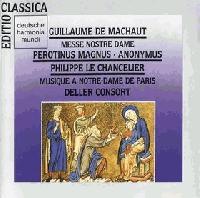



Guillaume De Machaut Messe De Notre Dame Album Review Sputnikmusic
It's a collection of German, Flemish and French pieces from the early 16th century The 86 piece collection is now fully published in four volumes, and there is some fantastic music in it – pieces by well–known composers including Josquin, Senfl and Pierre de la Rue, and lots of hidden gems We are going to be recording two CDs – thisGuillaume de Machaut, Machaut also spelled Machault, (born c 1300, Machault, Fr—died 1377, Reims), French poet and musician, greatly admired by contemporaries as a master of French versification and regarded as one of the leading French composers of the Ars Nova (qv) musical style of the 14th centuryIt is on his shorter poems and his musical compositions that hisMass of Notre Dame Today Guillaume de Machaut's fourvoice ______________ is a textbook example for medieval counterpoint (two or more voices singing independently), and has served to maintain his reputation across shifts in fashion




Guillaume De Machaut Classical Music History 9 Medieval Period Youtube




Pdf Guillaume De Machaut And The Mise En Page Of Medieval French Sung Verse Link To Full Text Pdf Kate Maxwell Academia Edu
Generally acclaimed the greatest composer of the 14th century is Guillaume de MachautLike so many other medieval composers, Machaut was both musician and poet His works are preserved to a degree astonishing for the 14th century there are manuscripts for hundreds of poems and some 145 musical worksGuillaume De Machaut For all musiclovers who enjoy compiling lists of the greatest composers of all time, the Orlando Consort are proud to champion the case for the name of Guillaume de Machaut to appear close to the summit Today this 14th century French cleric is bestknown for a single work, the extraordinary Messe de Nostre DameMachaut composed in a wide range of styles and forms He is a part of the musical movement known as the ars nova Machaut helped develop the motet and secular song forms Machaut wrote the Messe de Nostre Dame, the earliest known complete setting of the Ordinary of the Mass attributable to a single composer




Guillaume De Machaut The Best Known Composer Poet Of The 14th Century Musica Kaleidoskopea
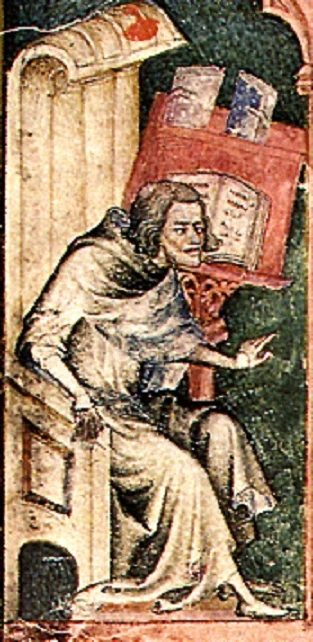



Guillaume De Machaut Penny S Poetry Pages Wiki Fandom
Guillaume de Machaut was born in 1300, Machaut, France which is located by the city of Reims, wellknown for its cathedral and served as a crowning site for French kings It's very likely that Guillaume de Machaut received his education and training at a cathedral school since the Roman Catholic Church was still in power at the time and had Although you might never have heard of him, Guillaume de Machaut is famous for his poetry as well as his musical compositions Medievalists love him because he demarks the end of the true medieval era—both the style of his music and his poetry change from monody (one melodic line sung or played by everyone in unison) to polyphony (multiple melodic lines—but stillWhose name was Guillaume de Machaut's associated with by the 1370s, thus establishing his fame as far as Asia?




A History Of Classical Music Part 3 The Early Renaissance The List




Guillaume De Machaut French Poet And Musician Britannica
Guillaume de Machaut was the most important figure of Ars nova, who introduced polyphonic writing into musical art Although his poetry is less well known, Guillaume de Machaut was nevertheless considered The Foremost Composer Of FourteenthCentury FranceGuillaume de Machaut Guillaume de Machaut (ca ) was the greatest French composer of his century, the creator of the first complete polyphonic Mass setting, and a renowned poet Guillaume de Machaut was born in the village of Machault in Champagne, near Reims He became a cleric, and in 1323 he joined the household of King John ofGuillaume de Machaut (c 1300 – 1377) was a medieval French poet and composer He is regarded by many musicologists as the greatest and most important composer of the 14th century He is a part of the musical movement known as the ars nova Machaut wrote the "Messe de Notre Dame," the earliest known complete setting of the Ordinary of the




Guillaume De Machaut Wikipedia




Machaut S Messe De Nostre Dame An Overview Musica Kaleidoskopea
6 See Volume 3 of Guillaume de Machaut The Complete Poetry and Music 7 See lines 30–86 of the Confort, in Volume 2 of Guillaume de Machaut The Complete Poetry and Music 8 Gauvard, "Portrait du prince," p 26; HESPERUS creates the soundtrack for the 1923 silent film The Hunchback of Notre Dame with music from fourteenth and fifteenth century France Compositions include French and Burgundian music from , featuring Guillaume de Machaut, Jehan l'Escurel, Guillaume Dufay, as well as lesserknown composers such as Vaillant, Morton, and BorletThe Music of Guillaume de Machaut Background The leading composer of the ars nova in France was Guillaume de MachautHe was famous not only as a musician but also as a poetHis musical works include examples of most of the forms that were current in his time, and show him as a composer of mingled conservative and progressive tendencies Musical Forms and Style



Civ Quiz 6 Flashcards Quizlet




Buy Sheet Music Guillaume De Machaut
1300 Guillaume de Machaut, French composer, born 1325 Francesco Landino, Italian composer and organist born 1329 Phillipe de Vitry coins the name "Ars nova" for the new, strongly contrapunctal style of music 1350 Lute playing is now popular throughout Europe 1350 Mastersinger movement begins in Germany To music historians, the period is known by two appellations the Ars Nova and the Trecento The first refers to the musical innovations made in France during this period, particularly around the court of Avignon;GUILLAUME DE MACHAUT (1300?–1377) One of the foremost poets of the younger generation in the closing decades of the fourteenth century, Eustache Deschamps took the occasion of the death of Guillaume de Machaut in 1378 to memorialize him with two ballades (numbers 123 and 124) 1 The Champenois poetmusician, so Deschamps avers, was the mondains dieux d'armonie (the




The Empty Bower And The Lone Fountain




Foy Porter Song Medieval Music
The second, to the new wave of musical forms and styles sweeping through Italy during the same periodWe would say "poem"C 1300 – April 1377) was a French composer and poet who was the central figure of the ars nova style in late medieval musicHis dominance of the genre is such that modern musicologists use his death to separate the ars nova from the what is now termed ars subtilior Regarded as the most significant French



2




The Polyphonic Lais Of Guillaume De Machaut Overview Recordings Musica Kaleidoskopea
Guillaume de Machaut Machaut is an example of our first crossover artist, bridging the time period transitioning from the Dark Ages to the Renaissance His music being a fine example of the ars nova (new age) During his lifetime, he was as well known as a poet as he was a composer To put this in perspective, he was around during the same Guillaume De Machaut Messe De Notre Dame 40 excellent Release Date 1365 Tracklist Review Summary Part V A swan song for the Middle Ages As mentioned in Part III, the music of Léonin and Pérotin contain the earliestknown examples of French polyphony, pieces that must have been groundbreaking at the time of their compositionGuillaume de Machaut (French ɡijom də maʃo;




Guillaume De Machaut Wins Award From The Renaissance Society Of America Elizabeth Eva Leach




Machaut S Messe De Nostre Dame An Overview Musica Kaleidoskopea
Guillaume de Machaut Died 1377 Summary Guillaume de Machaut was a medieval French poet and composer He is a part of the musical movement known as the ars nova Machaut helped develop the motet and secular song forms (particularly the laiIt's not always appreciated by nonspecialists that Guillaume de Machaut () was a poet as well as a composer Indeed, in the middle ages his poetry was more widely known than his music Much of his work took the form of the narrative dit; Introduction Guillaume de Machaut (c 1300–1377) is recognized by most scholars as the most important French poet and composer of the 14th centuryBorn in Champagne and probably trained in Reims and Paris, he spent much of his career as clerk, almoner, notary, and secretary to John, king of Bohemia, with whom he apparently traveled as far afield as Poland and
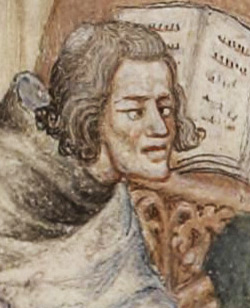



Guillaume De Machaut Classical Archives




Medieval Composers Hildegard Von Bingen Guillaume De Machaut Leonin Perotin Video Lesson Transcript Study Com
Machaut's 'Notre Dame' Why a 14th century mass is the genesis of modern music Guillaume de Machaut's 14th century mass may evoke How to Listen Machaut's "Messe de Notre Dame" Travelogue DVDs are the favored entertainment in my dentist's office during teeth cleaning Once, as I was distracting myself by following a helicopter tour over the historic NotreDame Cathedral in Reims, France, the buzz of the polishing device triggered a vividly ringing performance, inside my head, of the opening of Guillaume de MachautAbout Guillaume de Machaut Guillaume de Machaut was born around 1300 in Champagne He was educated as a cleric By 1323, he had entered the service of John of Luxembourg, King of Bohemia, with whom he travelled on several occasions to eastern Europe Machaut was in King John's service until the latter's death at the battle of Crécy in 1346



Guillaume



Guillaume De Machaut C 1300 1377
Guillaume de Machaut Machaut, Guillaume de (ca) French composer, poet and chronicler born between 1300 and 1305 Guillaume de Machaut joined John of Luxembourg, King of Bohemia, as secretary of the entourage around 1323, and with this monarch he toured all of Europe until 1340Essays and criticism on Guillaume de Machaut Critical Essays French poet and composer Long regarded as a minor literary figure and mainly recognized as a composer, Guillaume de Machaut




Planet Hugill Machaut S Messe De Nostre Dame Rethought By Graindelavoix




Machaut S Messe De Nostre Dame An Overview Musica Kaleidoskopea




Guillaume De Machaut Classical Music History 9 Medieval Period Youtube
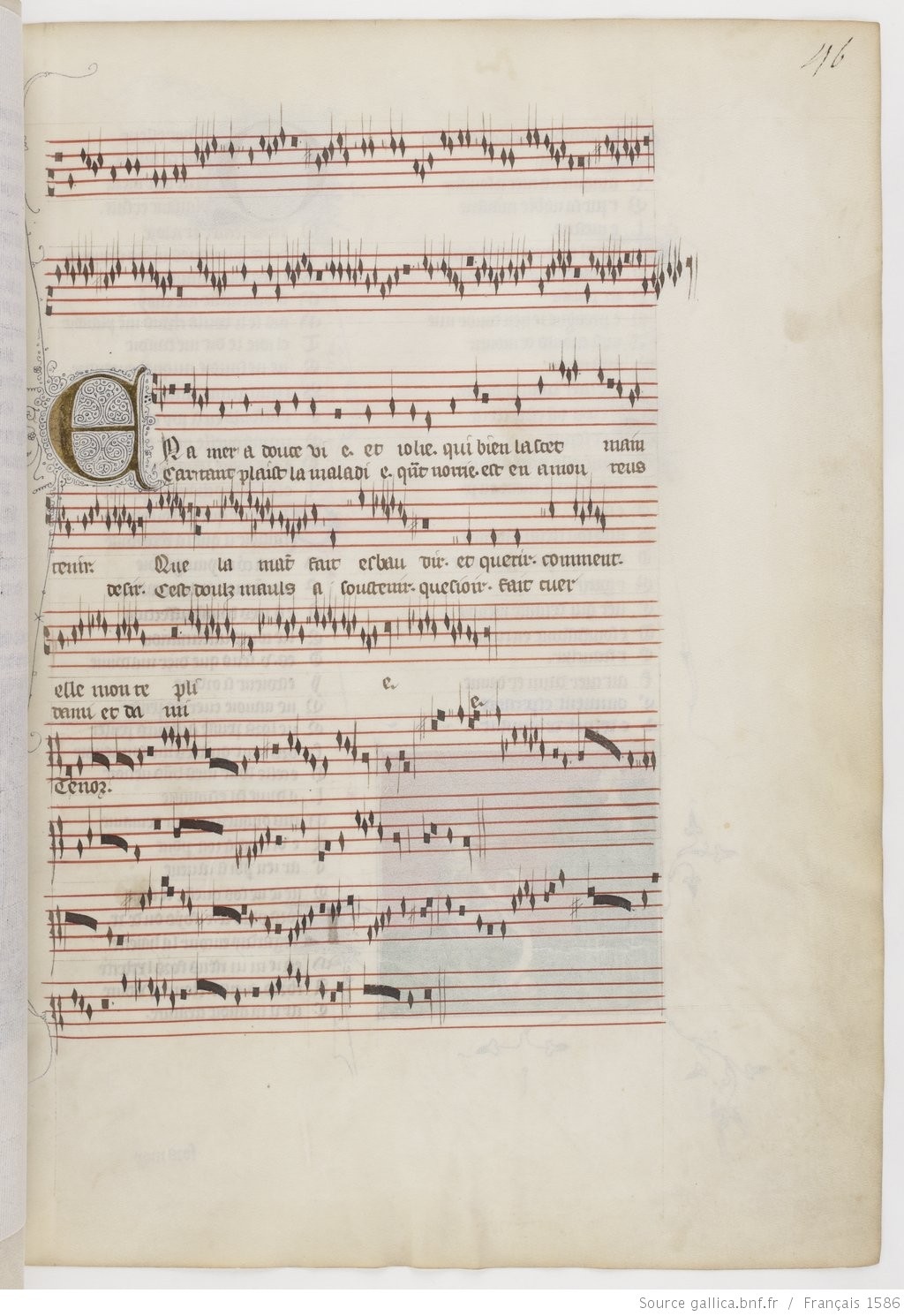



The Songs Of The Remede Guillaume De Machaut C 1300 1377




Guillaume De Machaut Alchetron The Free Social Encyclopedia




John Of Bohemia Guillaume De Machaut C 1300 1377




Guillaume De Machaut Music And Ars Nova Style Video Lesson Transcript Study Com




Amazon Com Guillaume De Machaut The Complete Poetry And Music Volume 9 The Motets Teams Middle English Texts Jacques Boogaart Jacques Boogaart R Barton Palmer Books




Guillaume De Machaut The Best Known Composer Poet Of The 14th Century Musica Kaleidoskopea
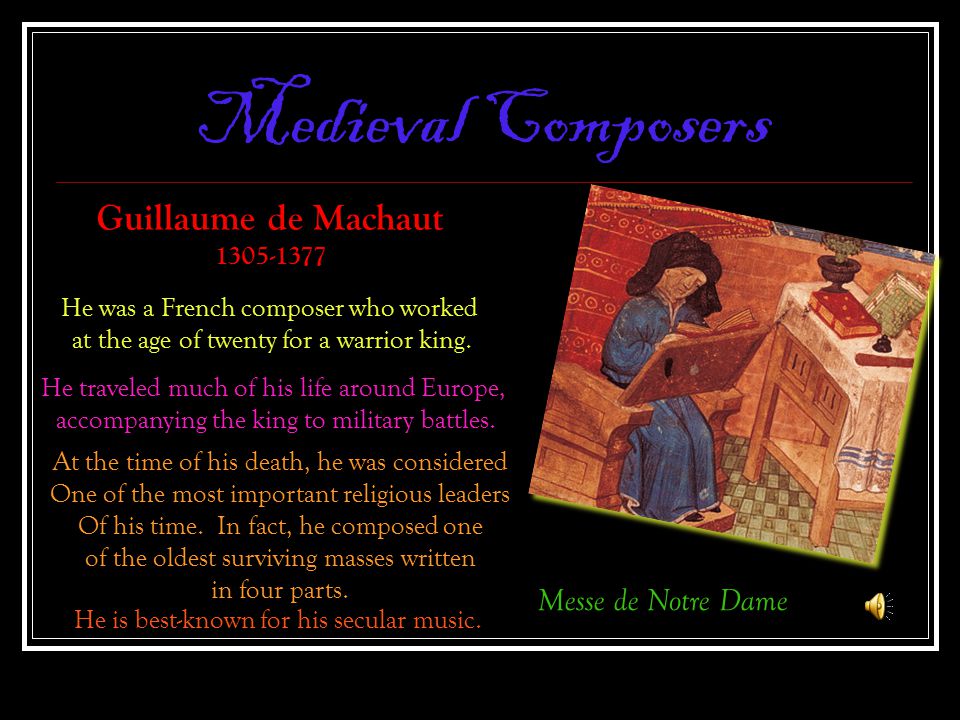



Medieval And Renaissance Music Ppt Video Online Download
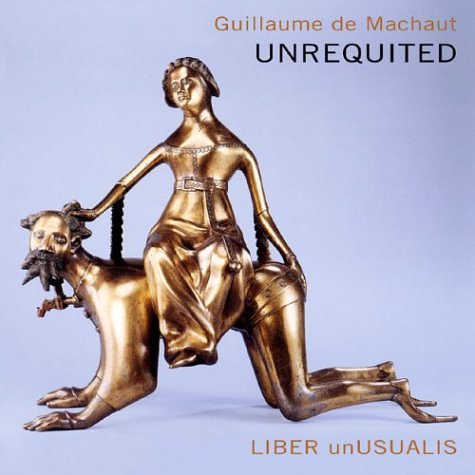



Guillaume De Machaut 1300 April 13 1377 France Composer Poet World Biographical Encyclopedia
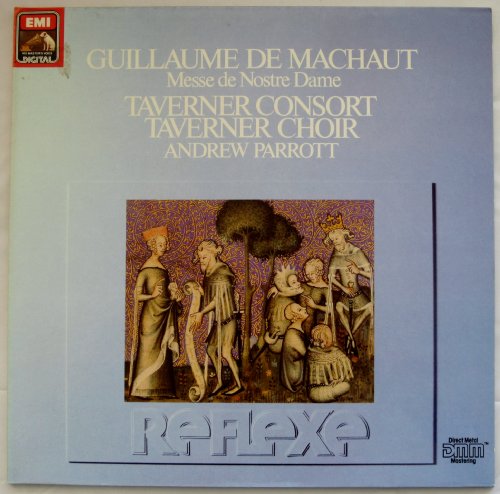



Guillaume De Machaut 1300 April 13 1377 France Composer Poet World Biographical Encyclopedia



Classical Net Basic Repertoire List Machaut



Guillaume De Machaut Messe De Nostres Dame




Cassical Music Timeline Medieval Music 1300 1400



The Orlando Consort
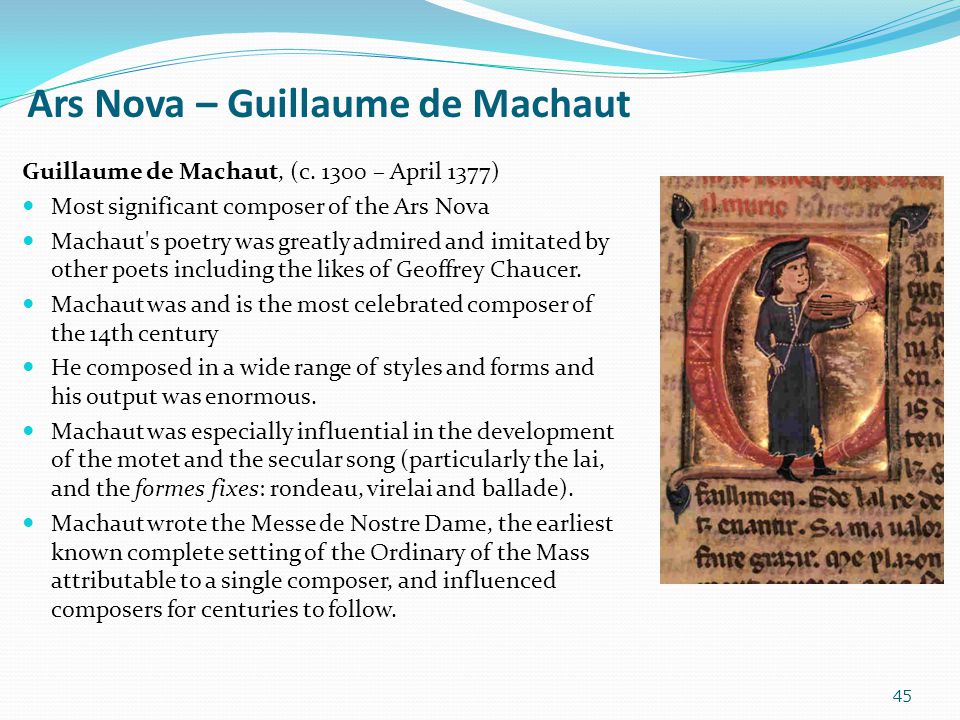



Stylistic Periods Middle Ages Renaissance 1600 Baroque Ppt Download
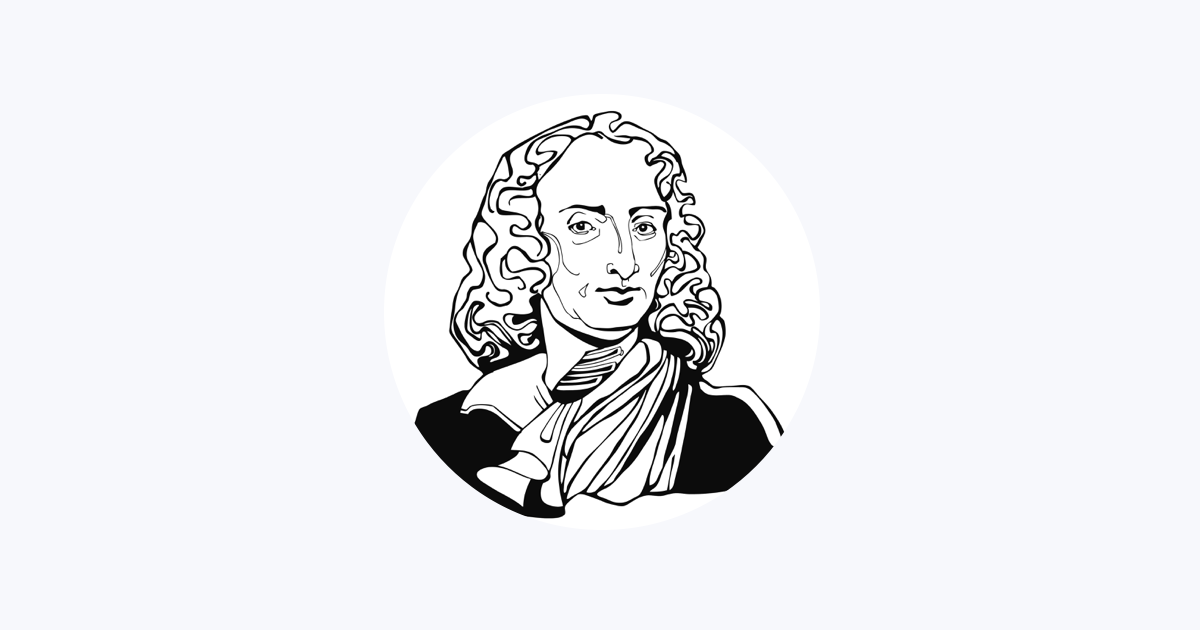



Guillaume De Machaut On Apple Music




Guillaume De Machaut Quotes Quotes Of Famous People




Planet Hugill Machaut S Messe De Nostre Dame Rethought By Graindelavoix




Guillaume De Machaut The Best Known Composer Poet Of The 14th Century Musica Kaleidoskopea



Guillaume De Machaut 1300 April 13 1377 France Composer Poet World Biographical Encyclopedia
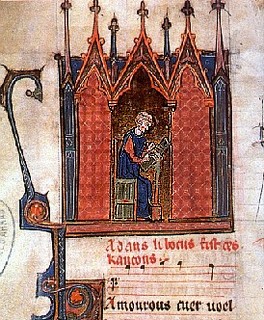



Adam De La Halle Wikipedia




Ensemble Organum Marcel Peres Dir Guillaume De Machaut La Messe De Notre Dame Album Art Covers




History Of Music In Paris Wikipedia



1




Ensemble Organum Marcel Peres Dir Guillaume De Machaut La Messe De Notre Dame Album Art Covers




Guillaume De Machaut Classical Music History 9 Medieval Period Youtube




News Features Archives Page 14 Of 44 The Boston Musical Intelligencer



Classical Net Review Machaut Le Remede De Fortune




10 Important Medieval Era Composers Hello Music Theory




De Machaut Guillaume Sacred Secular Music Amazon Com Music
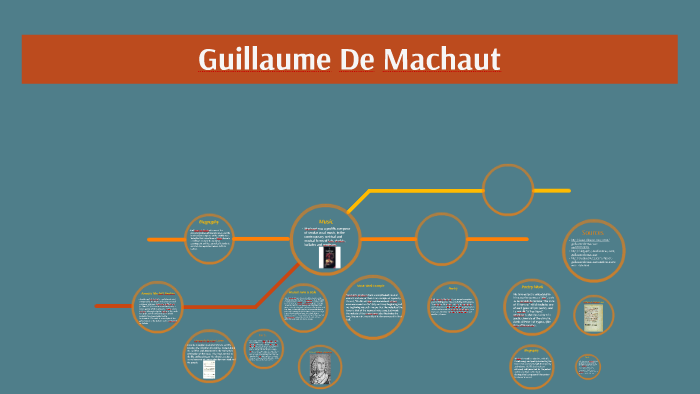



Guillaume De Machaut By Ben Bealle




06 Love Songs Of Guillaume De Machaut The Orlando Consort Events Oxford Lieder




Guillaume De Machaut Alchetron The Free Social Encyclopedia



2



Poetry Art And Music In Guillaume De Machaut S Earliest Manuscript Bnf Fr 1586



Medieval



Unit 6 Guillaume De Machaut Ca 1300 1377 Flashcards Quizlet
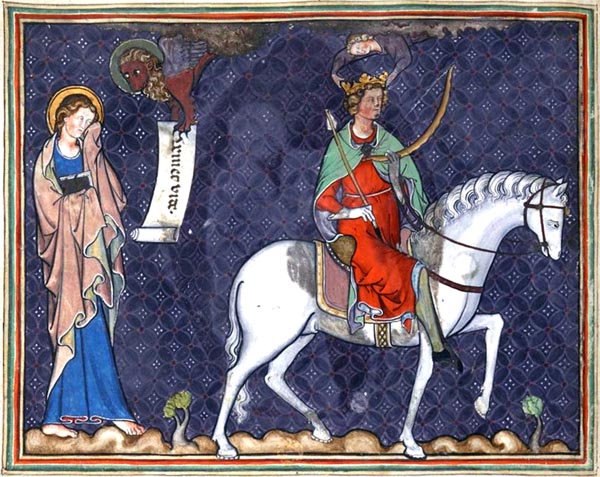



Machaut Guillaume De C 1300 1377 The Book Of The True Tale Le Livre Dou Voir Dit Part I




Ot H P Lac P O Lde O
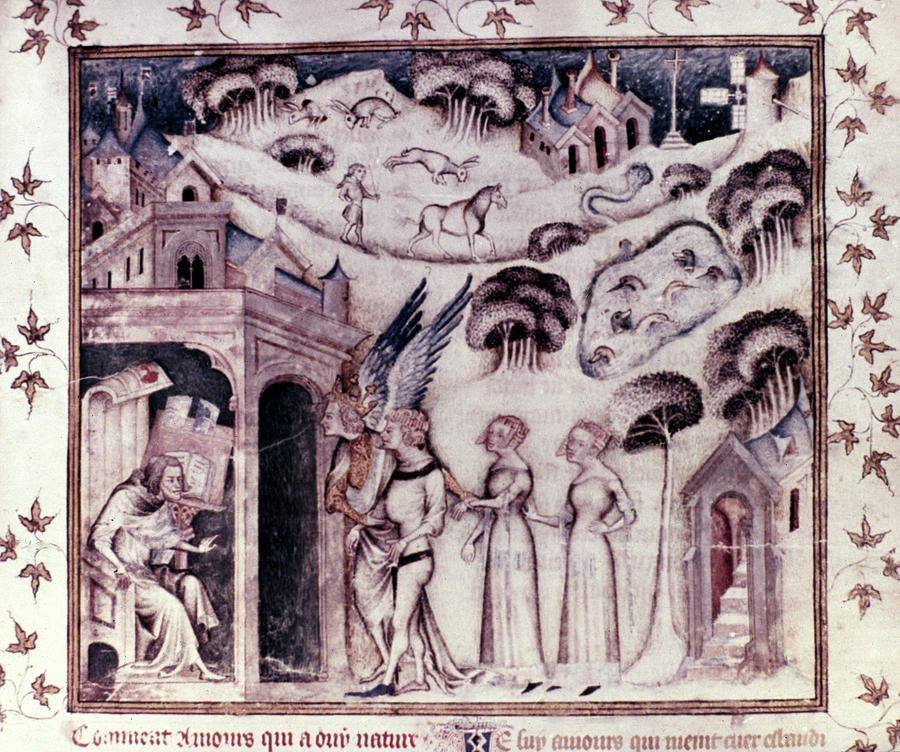



Guillaume De Machaut Painting By Granger




Guillaume De Machaut The Best Known Composer Poet Of The 14th Century Musica Kaleidoskopea



2




Music History Guillaume De Machaut C 1300 1377
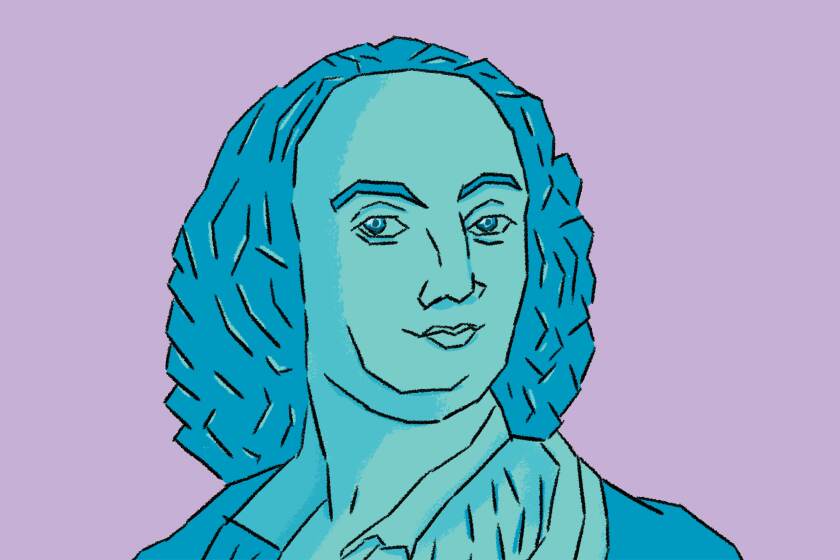



Classical Music Series Machaut And Messe De Notre Dame Los Angeles Times



A History Of Classical Music Part 3 The Early Renaissance The List




Medieval Musical Genres Music Appreciation 1




The Story Of Music Part 2 Pure Musician




De Machaut Sacred And Secular Music Youtube




Guillaume Dufay Franco Flemish Composer Britannica




Musical Style And Accomplishments Of Guillaume De Machaut Flashcards Quizlet




Mass Of Notre Dame The Imaginative Conservative




Machaut S Messe De Nostre Dame An Overview Musica Kaleidoskopea
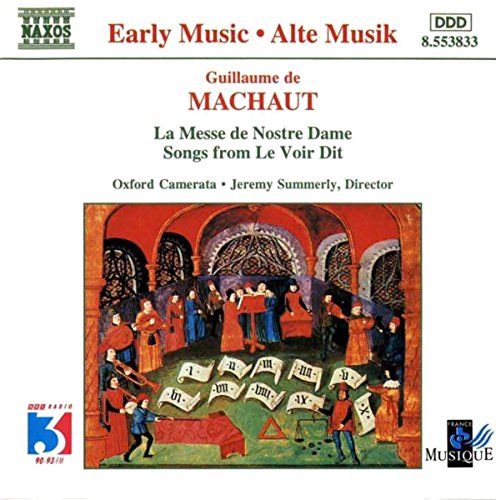



Guillaume De Machaut 1300 April 13 1377 France Composer Poet World Biographical Encyclopedia




Cassical Music Timeline Medieval Music 1300 1400




Guillaume De Machaut The Complete Poetry And Music Volume 9 The Motets Teams Middle English Texts Jacques Boogaart Jacques Boogaart R Barton Palmer Books Amazon Com




Guillaume De Machaut The Best Known Composer Poet Of The 14th Century Musica Kaleidoskopea




Zodiac Outhere Music
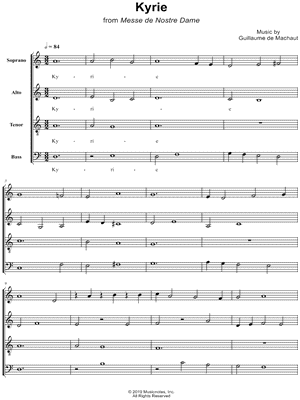



Buy Sheet Music Guillaume De Machaut
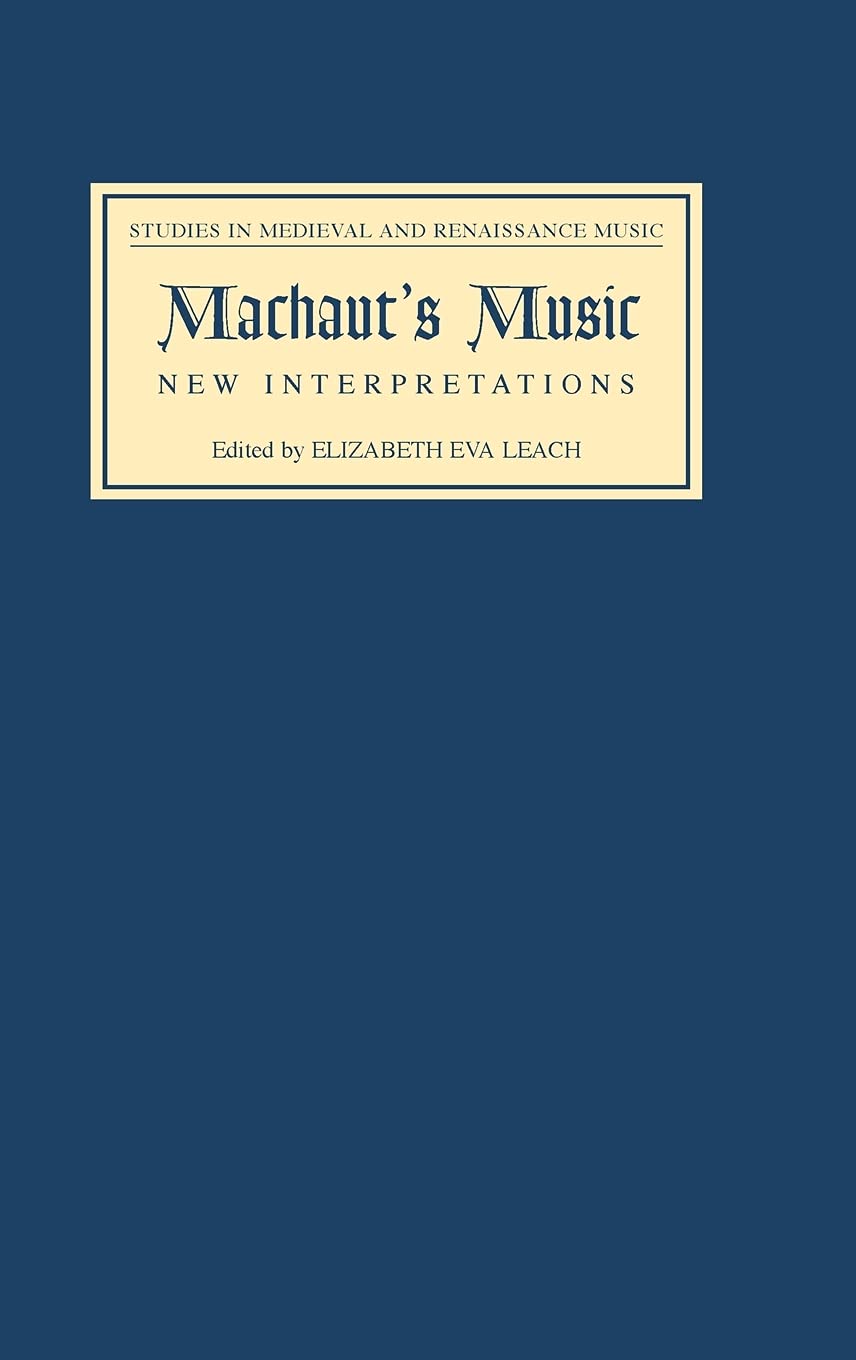



Machaut S Music New Interpretations Studies In Medieval And Renaissance Music Leach Elizabeth Eva Clark Alice V Stone Anne Berger Christian Leech Wilkinson Daniel Amazon Com Books




Guillaume De Machaut Free Sheet Music To Download In Pdf Mp3 Midi




Pdf Leech Wilkinson Palmer Guillaume De Machaut Le Livre Dou Voir Dit Daniel Leech Wilkinson Academia Edu




The Medieval Lyric About Guillaume De Machaut
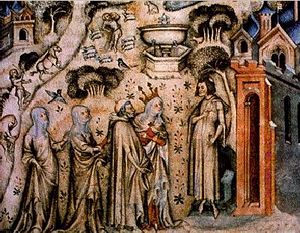



Guillaume De Machaut New World Encyclopedia




Njit S Burt Kimmelman Earns Praise For Exploring A Medieval Poet S Legacy
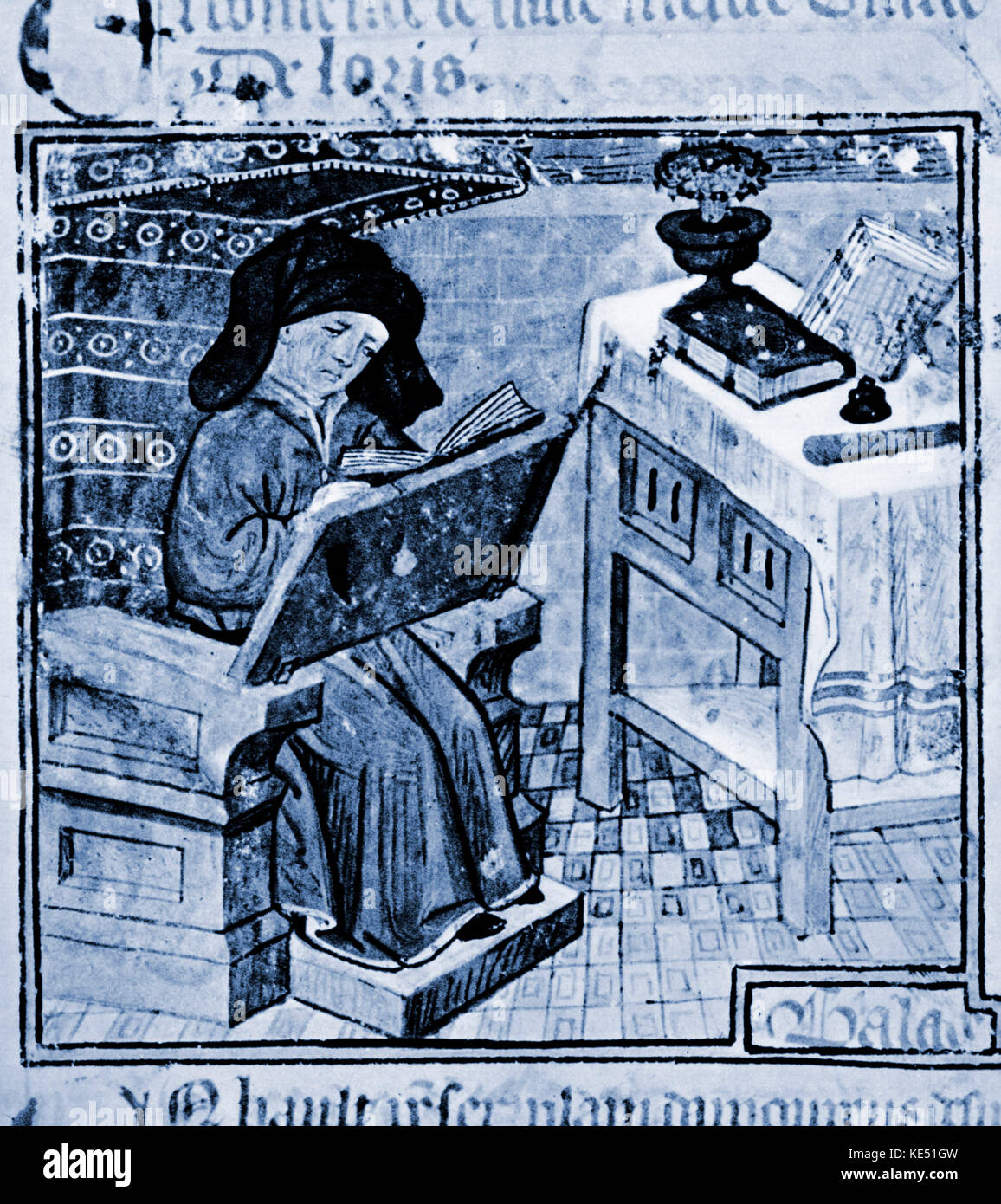



Guillaume De Machaut Contemporary Portrait French Composer And Poet 1300 1377 Stock Photo Alamy
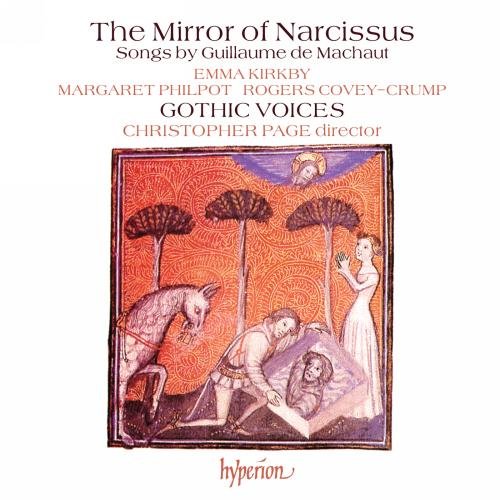



Guillaume De Machaut 1300 April 13 1377 France Composer Poet World Biographical Encyclopedia



Guillaume De Machaut Musical Style And Contributions Flashcards Quizlet




Guillaume De Machaut Alchetron The Free Social Encyclopedia




Machaut Sovereign Beauty Cda Guillaume De Machaut C1300 1377 Hyperion Records Mp3 And Lossless Downloads




Medieval Composers Hildegard Von Bingen Guillaume De Machaut Leonin Perotin Video Lesson Transcript Study Com



2




French Provencal Medieval And Renaissance Studies Libguides At University Of Illinois At Urbana Champaign




The Empty Bower And The Lone Fountain




Guillaume De Machaut Gothic Voices The Mirror Of Narcissus Secular Songs By Guillaume De Machaut Amazon Com Music




Music History Guillaume De Machaut C 1300 1377




Priceless Medieval Music Manuscript Now Widely Available For Study Mead Witter School Of Music




Amazon Com Guillaume De Machaut The Complete Poetry And Music Volume 9 The Motets Teams Middle English Texts Jacques Boogaart Jacques Boogaart R Barton Palmer Books



1


